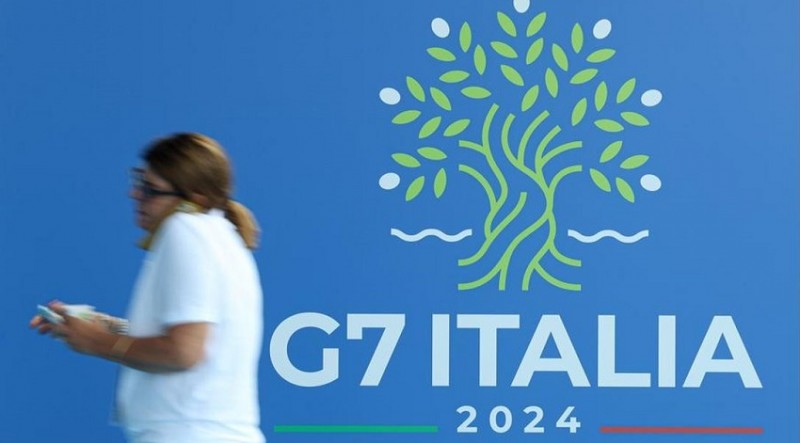The just concluded G7 summit in Italy confirms how politics can impact economic and military interests of top global players. The G7 group which includes the US, UK, Germany, France, Italy, Canada and Japan had gathered in Italy to discuss how best their economic interests could be served. But they ended up majorly discussing China, accusing it of aiding Russia on its Ukraine war and threatening to impose further sanctions on it. This only complicated further the political-economic tussle between the world’s most advanced countries on the one hand and China and Russia on the other. Its joint statement at the end of the summit categorically stated that China’s support for Russia is ‘enabling’ the latter’s war in Ukraine. The warning comes when the US is trying hard to rally Europe behind it to adopt a tougher stance on China. This also could have weighed in further because of Japan pulling the anti China strings due, in great amounts, to geopolitical considerations.
The G7 was unanimous in its conclusion that China’s ongoing support for Russia’s defence industrial base is helping continue its war in Ukraine. It did not stop there and issued a veiled threat to China to end the transfer of dual-use materials, including weapons components and equipment that are inputs for Russia’s defence sector.
The leaders also threatened further action, including sanctions, to punish Chinese entities that they say are helping Russia circumvent Western embargo. These actors, according to G7 leaders, are materially supporting Russia’s war machine, including financial institutions.
China immediately countered all these charges by accusing the US of using the war as ‘an excuse to smear China’ and cripple its companies. In a statement, China’s Ministry of Foreign Affairs slammed the G7 position saying it ‘manipulated issues’ and ‘slandered and attacked China.’ It questioned the rationale of the continuance of the G7 bloc itself which, in its opinion, has long deviated from the original intention of coordinating and stabilising the international economic environment, and has increasingly become a political tool to maintain the hegemony of the US. Its spokesperson adopted an equally belligerent posture and said the grouping would ultimately shoot itself in the foot by ‘weaponising’ its trade relations.
The G7 voiced strong opposition to what it calls China’s unilateral attempts to change the status quo by force or coercion in the East and South China seas. In fact, some of China’s neighbours have for some time been expressing concern over its dangerous use of coast guard and maritime militia in the South China Sea and its repeated obstruction of other countries’ high seas freedom of navigation. It is only natural that China would not keep quiet when an international body raises the most sensitive issues against it.
The joint statement also lashed out at the alleged suppression of freedom of the populace in Hong Kong, Xinjiang and Xizang. China termed the allegations as slanders having no factual basis and clichés with no moral justification.
Be that as it may, the G7 has succeeded in making member nations think about de-linking their economic interests from China’s expansionist policies that are part of its strategy to become the world’s number one economic power. While China may have been seen above the horizon, it is primarily Russia which has started threatening Western Europe directly and the US a little further away. Adding fuel to fire, Russia’s Putin today has pledged support to North Korea in case of hostilities by the US. While the G7 was a serious summit with global consequences, there undoubtedly were present many smaller countries as special invitees or guests who had very little role to play in these crucial deliberations.
